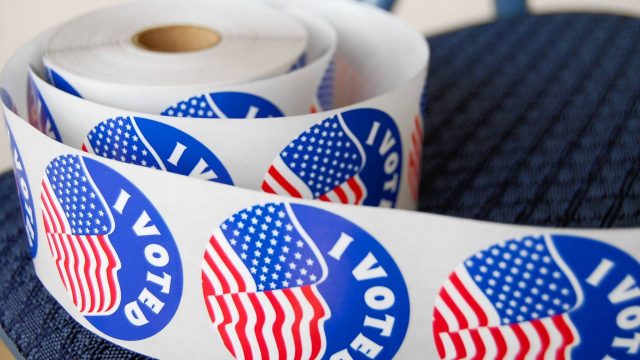John Olsrud: Voting Has Nothing To Do With Driving

Much attention has been given to the “easy as pie” voting system in North Dakota after voting requirements were tightened by the 2013 Legislative Assembly. Subsequent reports have indicated the new requirements have disenfranchised hundreds of students who wished to vote in their current precincts. Instead of changing the law back to the way it was, it appears there may be some changes in the law regarding student identification cards and the issue may be studied before the 2017 session.
None of us want fraudulent votes canceling our ballots. We need to make sure no one is voting more than once. But do we really want to disenfranchise eligible voters based on technicalities? Voting by eligible voters should be viewed as a basic right and we should strive to make it “easy as pie” for qualified voters to cast their ballots.
We take pride in North Dakota’s status as the only state without voter registration. Drivers’ licenses are a good form of identification, but the address on a license does not necessarily reflect a person’s current residence, particularly for students, for reasons explained later. If a voter is required to do some paperwork prior to an election to prove residence, we might as well have voter registration.
[mks_pullquote align=”right” width=”300″ size=”24″ bg_color=”#000000″ txt_color=”#ffffff”]We take pride in North Dakota’s status as the only state without voter registration. Drivers’ licenses are a good form of identification, but the address on a license does not necessarily reflect a person’s current residence, particularly for students, for reasons explained later. If a voter is required to do some paperwork prior to an election to prove residence, we might as well have voter registration.[/mks_pullquote]
I think my own experience many years ago will make my point. After a two-year absence, I returned to North Dakota to attend law school. My parents lived in a county in which I had never lived, but it made sense to have their address on my driver’s license while I moved from one student address to another. It also made sense to use my parents’ address for college registration purposes so I was assured of getting official mail. Thus, my parents’ address was my mailing address, as contrasted to my residency, which is where I lived.
The year I returned to North Dakota was a presidential election year and I definitely wanted to vote. In August I moved into a very small sleeping room in the basement of a Grand Forks home. My landlady took in laundry and hung the wet clothes outside my door. To use the bathroom, I had to navigate through the wet clothing and go upstairs through the private living quarters of the landlady’s family.
State law provides that residency is the “union of act and intent”. A person can have only one residence, and in November of the year I returned to North Dakota, that awful sleeping room was my home. I knew I had to get out of there, and it made no sense to have my driver’s license show that address because I knew I would be moving. Yet, that was my residence because on election day that had been my home for over thirty days, even though my driver’s license and my student records had another address on them.
It is relevant for this discussion that in order to comply with federal law North Dakota still allows affidavits to prove residency for presidential elections. Thus, although the affidavit procedure is rather cumbersome, it shows that North Dakota still accepts affidavits to prove eligibility to vote and the use of drivers’ licenses to prove residency only applies to non-presidential elections.
For the reasons explained above, I think there are times when it makes sense to show parents’ permanent addresses on students’ drivers’ licenses and student records. There is not a connection between a driver’s license and voting, unless we, as a state, have decided a driver’s license is a license to vote.
Although a person can have only one residence at a time, most college students have a choice—they can either claim their parents’ homes or their college homes as their residences. What matters is each student’s intent to make one place or the other their residencies, as either location can meet the “act” part of the “act and intent” requirement. I am not sure if student identification cards are the answer, but they are better than drivers’ licenses.
If we want to encourage voting in this state, an obvious solution is to go back to the prior law and allow affidavits. If there is fraud or duplicative voting, we have laws to prosecute violators, of which it appears there are few.
I think every North Dakotan has been justifiably proud that we are the only state without voter registration. Now, we are disenfranchising hundreds of voters. That is not something to be proud of.




